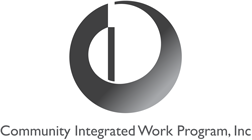TRA teaches social and sexuality skills through training clients and caregivers to navigate issues of trauma and its effects on daily living. TRA promotes collaboration and advocacy while reinforcing client safety. The program provides much needed psychotherapy services to clients who are exposed to various forms of trauma. The mission of the TRA Program is to guide survivors of trauma in utilizing appropriate coping strategies to heal, create healthy relationships, and reside in the least restrictive and most fulfilling living environment.

TRA will create Assessments and Treatment Plans to address client behavior and provide recommendations for implementing appropriate coping strategies.
TRA will create partnerships with community mental health providers. TRA will provide trainings to these providers in working with the DD population.
TRA works with support services to increase client assertiveness, sexual awareness, consumer rights, personal boundaries, and understanding of healthy relationships.
TRA collaborates with Crisis Response Project (CRP) to manage crisis situations of TRA clients. CRP provides 24/7 mobile crisis support, 365 days per year.
TRA encourages the participation in individual, group, and/or family therapy. Therapies include focus on working through trauma, finding ways to heal, dating online, building healthy relationships, making choices, and creating a positive self-image.
TRA provides guidance to clients and caregivers regarding topics such as talking about sex, healthy sexual outlets, sexual consent, establishing boundaries, cultural considerations, community resources, and managing expectations.
- Survivors of sexual abuse and/or physical assault
- Witnesses of firsthand acts of sexual abuse and/or physical assault
- Perpetrators of sexual misconduct in need of training and therapy
- Clients who lack knowledge of healthy relationships and sexuality
- Individuals engaging in online dating who need guidance in potential dangers and best practices
- Consumers in potentially harmful relationships or those in an active state of intimate partner violence

